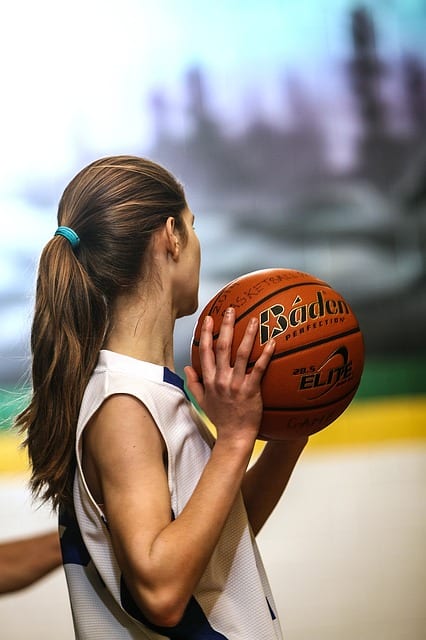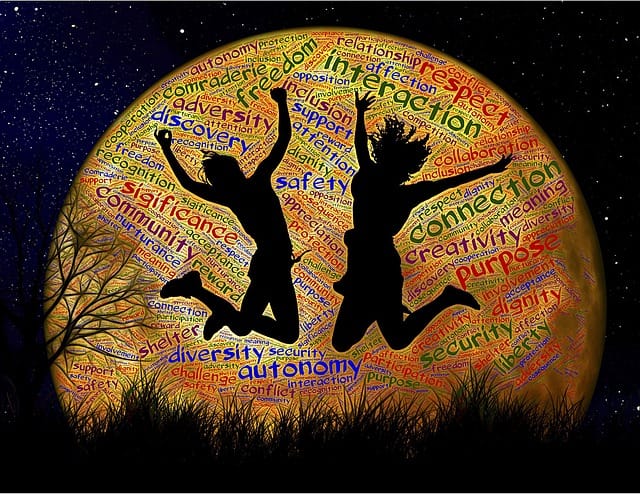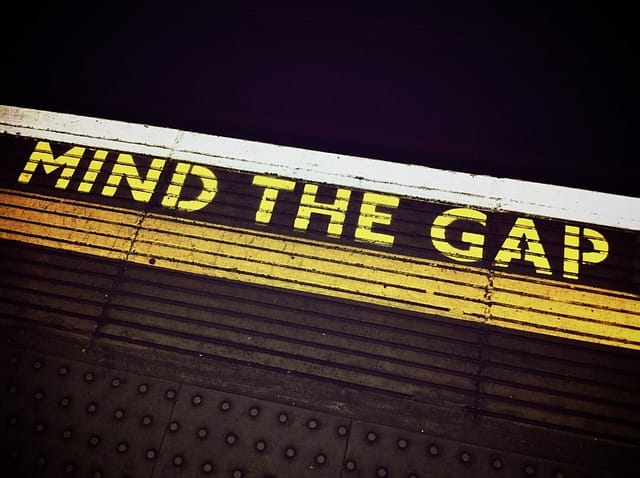×
Are you a youth
or elite athlete?
Partner with me to reach your performance goals and master your mindset.
×


My Journey in Sports Psychology
Sports, playing sports, watching sports, loving sports were all a part of my upbringing from as young as I can remember. When I realized I was good at basketball in 5th grade I felt exhilarated, like I was flying, full of passion and joy. Competition agreed with me! I have never stopped loving sports, watching or playing them. I went to countless basketball camps in and out of my home state of South Dakota and then went on to play for two years at North Idaho College in Couer d’ Alene, ID. I had numerous sports related challenges along the way and as a result not only did I take the South Dakota High School Athletic Association to Court while in high school and won but I shortened my college career by quitting the team after only two years due to a demeaning, punishing, harsh coach. I often say that quitting college basketball (the plan was to transfer to a Division 1 school) is my main regret in life.
Looking back on all of this many years later, I realize that yes, I did have some pretty challenging coaches and not only was I courageous as a young teen headed to Court and in confronting my college coach, I was also operating under the idea that I had to be the best basketball player on the court. I was incredibly motivated to say the least, but what I missed was resiliency, confidence in myself whether I played a good game or not, and an identity outside of being an athlete. I needed an identity as a successful athlete but more importantly as a grounded, balanced, happy human being. I do firmly believe that if I had those traits I would have been able to continue in college basketball, and even Division 1 basketball.
I suffered emotionally as an athlete and wish I could have had a sports psychologist to have helped guide and educate me along the way. How amazing it would have been to have a sports psychology advocate for me, my fellow team mates and our coach and parents! I believe in pursuing athletic excellence but it must be combined with emotional wellness and an emotionally healthy attitude towards sports pursuit and performance. I’d love to have the opportunity to help present-day athletes play well, love to play, recover from injury and pursue their passion with no regrets.
I also offer a unique blend of skill with my current role as a psychotherapist in private practice in Roseville, CA. I obtained my bachelor’s degree in Psychology from the University of Montana in 1993 and later my Master’s in Social Work from the University of Wisconsin, Madison in 2000. I have been licensed since 2006 and have had my own psychotherapy practice for almost 11 years. I love it and have been able to help many people address emotional and relational obstacles. But I feel something is missing. I want to help more, I want to combine my passion for sports, psychology and psychotherapy to offer services to adolescent and adult athletes.
I’d love to give athletes the emotional and psychological support that I didn’t get. If you or someone you know could benefit from mental skills guidance in the arena of sports, I’d love to hear from you!

How do you begin again after a setback? It could be a minor or a major setback or somewhere inbetween. After you take in what has happened, maybe a financial blow, an illness or a rejection, it’scommon to feel depressed. Maybe you made a mistake on something or maybe you were wrong and had to apologize. Whatever it is, make no mistake, it will serve to grow you, but first it will tear you down.
As a psychotherapist I believe in supporting people through times of stress, helping them with action plans and giving them hope. But I also know that sometimes life just sucks and we can only take it oneday, sometimes one hour at a time. We often ask why is this happening, what’s the lesson here? I don’t know about you, but for me the lesson isn’t always clear. Sometimes the clarity comes weeks or monthslater. I do know that we can’t bear these times alone. I hear people, especially adolescents say they don’t want to burden their family or friends with their stress or their “drama”. But isn’t that what arefriends and family for? Allow someone to be there for you, allow someone to listen to you because it helps them too. It reminds them that they are not alone and that everyone suffers. The great illusion is of course that some people have perfect lives, always having fun, going places….things come easy forthem. Well some people do have it easier than others but that doesn’t mean they are any happier. Thepersona may cover up their own pain. Try not to compare. I tell my clients to stay in your own lane.
During these difficult times we may just have to go through the motions until the clouds part. I do know that stopping your engagement with friends and family, ceasing exercise or your spiritual involvement,or stopping activities you’ve loved, won’t work out well for you. It just allows you more time to sit andruminate on what’s wrong or obsess about the stress you’re currently under.
By all means take care of yourself and say no when you have to but don’t stop living your life or doing things. You will get through this.
Pulitzer Prize winning poet Mary Oliver: https://www.poetryfoundation.org/poets/mary-oliver beautifully writes about life, loss, pain and the will to begin again.
Morning Poem
Every morning
the world
is created
Under the orange Sticks of the sun
The heaped
Ashes of the night Turn into leaves again
And fasten themselves to the high branches And the ponds appear
Like black cloth
On which are painted islands
Of summer lilies
If it is your nature
To be happy
You will swim away along the soft trails
For hours, your imagination Alighting everywhere.
And if you spirit
Carries within it
The thorn
That is heavier than leadIf it’s all you can do
To keep on trudging
There is still somewhere deep within you A beast shouting that the earth
Is exactly what it wanted
Each pond with its blazing lilies Is a prayer heard and answered Lavishly,
Every morning.
Whether or not
You have ever dared to be happy, Whether or not
You have ever dared to pray.

A good friend of mine texted me a cartoon picture of herself with a big hammer smashing 2017. I could relate! What a crazy year! The political climate, the natural disasters, fires and of course that is on top of all of our own personal struggles and set-backs. A client of mine recently stated that they made New Year’s resolutions for the first time this year. Maybe we are afraid to make resolutions because if we don’t meet them, then we feel defeated. We want to set hopes and intentions but not too high because we don’t want to disappoint ourselves. Better to just put our heads down and keep going without questioning where we are going, what our path may be and if we are really satisfied with our lives.
That works for a while until we get that gnawing feeling that we aren’t living out our potential or fully engaged in living. At that moment we have a choice: do we branch out, try something new, join a gym, a book club, take a class or do we keep our heads down and keep going through the motions? I’d suggest the former, but it does come with some risk. We risk trying and failing, we risk putting time into something we may or may not enjoy and we risk financially investing in a project, class or training that we have no guarantee will pay off. But isn’t that life? We know we don’t have guarantees but we continue to search for them. I promote trying. I promote practice and practicing again until we find what fits for us. Certainly, happiness comes and goes but feeling satisfied with our lives is consistent, when we continue to engage instead of disengage from living. And that means taking healthy risks.
I recently read the book, You are a Badass at Making Money by Jen Sincero, http://www.jensincero.com, and so much of what she said resonated with me. We have to be willing to risk to grow, we have to be willing to get uncomfortable to grow and to succeed. Of course, I have days where I’d rather not take a risk. I can be more private professionally by nature and to start a blog has pushed me out of my comfort zone. But, keeping my voice in the game is a personal commitment I’ve made to myself. There will always be critics and naysayers and those who put doubt in your mind for taking a risk. But as Brene Brown, http://www.brenebrown.com, author and researcher states, she’s not interested in hearing from those who are watching on the sidelines. She’d rather hear from those who are in the arena, in the game. So, what commitments can you make to yourself? What will 2018 bring for you?

That is the question I asked my husband. His first response is that it’s too “up in the clouds” for him. Knowing that he deals with a lot as a school principal I asked him if he’d give it a try if it made his job easier and he said “Yes!” There needs to be a buy-in with meditation because we are all so busy even if we are busy relaxing and we don’t give our time up easily. We want proof that something is going to work.
Fortunately, there’s more and more research showing the many benefits of meditation. In fact, researchers are finding that meditation can change the brain for the better. In a magazine publication called Mindfulness, An Everyday Guide an article titled “Mapping the Mind, How You Use Your Brain Changes It”, it states “Sarah Lazar is one of several researchers who have demonstrated that certain areas of the brain actually grow larger as a result of an ongoing meditation practice.” Furthermore, Lazar states, “It’s well documented that our cortex shrinks as we get older. It’s harder to figure things out and remember things. But in this one region of the prefrontal cortex, 50-year-old meditators had the same amount of gray matter as 25-year-olds”. www.amglifestylestore.com/p-2193-mindfulness.aspx Additionally, brain wave frequency patterns can be measured during meditation and meditators can have brain activity in a range that facilitates distraction-free learning and cognition. This can have the effect of decreasing stress hormones and make every day stresses easier to manage.
Meditation can also help us become more compassionate towards ourselves and others. Why is this important? Because compassion can help us deal with difficult emotions and bounce back from mistakes and set-backs. Kristin Neff, researcher and author on self-compassion shows the benefit of self-compassion meditations and exercises to decrease negative judgments of self and others. She points out on her website that “With Self-Compassion, we give ourselves the same kindness and care we would a good friend”.self-compassion.org
Pema Chodron, author, reflects on a meditation practice called Tonglen Meditation and it’s benefits. http://pemachodronfoundation.org I’ve found that Tonglen Meditation is a more active meditation that can help us feel more proactive in helping others. A general description of the practice is to take in or sit with the knowing of the suffering of someone else as you take an in-breath and then as you breathe out you wish that this person be free from suffering. Chodron points out that you can do this exercise towards someone you feel neutral toward, then toward someone you have strong love for and eventually for someone you dislike or have conflict with. I’ve found this meditation practice to be helpful in releasing long-term resentment I may have had toward someone. It’s also impactful to do this practice for complete strangers, someone you see on any given day who seems to be suffering.
Now knowing that meditation can change our brains for the better, guide us in being more compassionate towards ourselves and others and help us feel more proactive in helping others and releasing some of our own resentment, why not give it a try? It just might help.

Growing up, I wanted to be the best at everything I did. In high school and college, I pushed myself to excel in school and sports and had good success, but my self-esteem was held on by a thread to my athletic and academic performance. I now see many young teens and young adults today in my practice who feel they have to be perfect, especially to get into a good college. I’m stunned by the requirements expected to get into college now…a 4.0 GPA just doesn’t cut it anymore. This leads to a set-up for teens because if they feel they have to be perfect they will inevitably fail.
How do we teach our kids that it’s actually okay to fail and that doing so may even better prepare them for adulthood? It begins with letting them fail and not trying to ensure they never make a mistake, or as a parent, not over-reacting when they make a mistake. Lord knows, when they are out on their own they will make many mistakes and they need to learn to not give in, not to give up, and more importantly, not to over-react themselves. Many teens tell me that they don’t want to disappoint their parents. Parents need to have conversations with their kids about effort, achievement and self-worth and their kids need to be reminded of their value.
I’ve been inspired by the message and research from Brene Brown on bravery and vulnerability. http://brenebrown.com. She reports that failure actually happens as a result of being brave. In her book Daring Greatly she says,
“Perfect and bulletproof are seductive, but they don’t exist in the human experience. We must walk into the arena, whatever it may be…with courage and the willingness to engage. Rather than sitting on the sidelines and hurling judgment and advice, we must dare to show up and let ourselves be seen. This is vulnerability. This is daring greatly”.
There are three things that we can do to remind teens how to bounce back from setbacks and let go of the need to be perfect. First, it’s important to remember that none of us is defined by what we do! That’s a tough concept to get across when our society rewards performance and excellence above all else. Of course, teens can strive for excellence, but that should not define them. We are complex, layered human beings that do many things and no one thing defines us.
Secondly, encourage them to let go of comparing themselves to others. And boy don’t we all need to do this! This comparison game is a no-win situation. Teens will fare better if they set their own goals and intentions, stay in their own lane, and focus on their own improvement.
Finally, realize there are many paths toward success, not one singular, perfect path. The successful teens I see who change course with college plans, career plans, or end toxic relationships all have an ability to be flexible and give themselves permission to change their course. They don’t get stuck in forcing a path. Consequently, their self-talk is less negative if they make a mistake or hit an obstacle along the way.
So, let’s all go out and fail!! Sounds silly but in reality, it may be the best thing that can happen!
Special note: Learning the practice of ‘mindfulness’ is a great way to work through the stress or anxiety of failure and discover new and different paths available to you. Why did you fail? Did you really fail, or did you discover something great and true about yourself, like something you thought you wanted wasn’t what you wanted at all?
Learn a bit about mindfulness HERE and consider giving it a try and then sharing it with your teen!

The Mindful Athlete: Secrets to Pure Performance by George Mumford has been an awesome read for me.
As a high school and college basketball player I was immediately drawn to Mumford’s approach, as well as knowing he effectively worked with highly successful NBA players (Michael Jordan, Kobe Bryant) and elite athletes. He promotes a way of being mindful both in and out of the sports arena.
I frequently look for parallels between the mental aspects of athletic success and life success, and have found that mindfulness can help improve your sports game and your general attitude towards life.
What is mindfulness? It’s a way of being present, or noticing whatever one is thinking or feeling without judging it as good or bad. Certainly, it’s important that the athlete not spiral into a negative mental state after making a mistake or after an injury. Furthermore, as a psychotherapist, I also see how practicing mindfulness is helpful for my clients experiencing depression and anxiety by allowing them to be less reactive to their emotions and more empowered to choose a positive solution. We can practice mindfulness in many ways …ways that don’t take up a lot of time. I think both athletes and non-athletes alike can practice mindfulness through mediation, quietly noticing and taking in sights and sounds, and heightening awareness of negative self-talk.
Mumford clarifies how he instructs mediation. Specifically, one is to sit quietly, close their eyes or look downward and focus on their breath, especially the space between the in-breath and the out-breath. I like to think of that space as the sweet spot and the more you can hang out there the more peaceful you can feel. Of course, we will get off track and may start to obsess about something, or anything, but focusing back on the breath can help get us out of the obsessive loop. It helps to practice this and get comfortable cycling through a number of times to get the benefit of being present or mindful of the moment.
Quietly noticing sights and sounds is another great way to be mindful. We are so busy with our lives that we rarely stop to really look at something or listen, just noticing and again, without judging it as good or bad. I challenge you do this at least once a day and see if your reaction to stressful life events is more manageable and less negative or impulsive. It’s important though to practice mindful listening or mindful sight for several seconds, preferably a minute or two at a time to let the experience sink in.
Finally, I see how having a daily practice of mindfulness helps one to be more aware of negative self-talk and consequently more aware of intervening on it. If we notice we are putting ourselves down, or labeling ourselves in some way …or obsessing over a mistake we made, we can then take a step back from that and either challenge that thought, or we can remind ourselves that all thoughts and feelings come and go and the negative feelings will also pass. As a result, we become less reactive to our own minds, our own thoughts and consequently have greater clarity on what to do. Both the athlete and non-athlete alike can benefit from slowing down, taking a breath and just noticing without reacting. We can always return to this practice again and again.
Athletic success is important, but living a life of awareness can lead to true success.
What happens when we want to avoid failing and no amount of mindfulness seems to help? I will address this further in my upcoming blog on the topic of failure!
Recent Comments